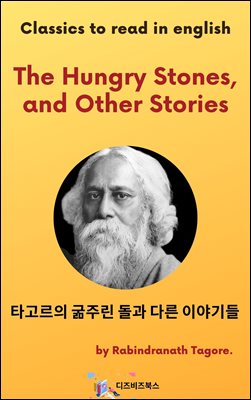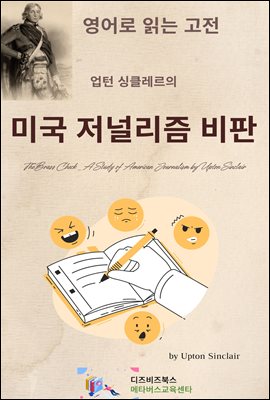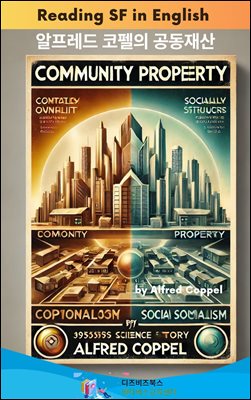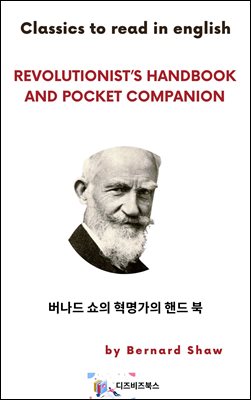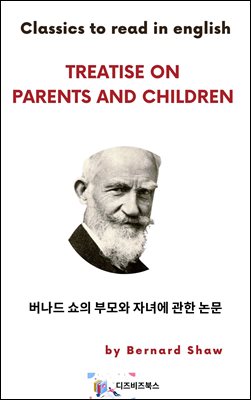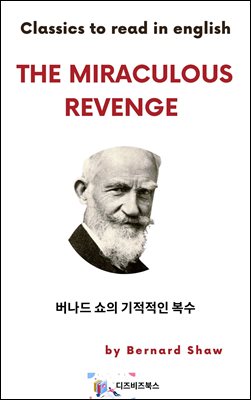
버나드 쇼의 기적적인 복수
- 저자
- 버나드 쇼(Bernard Shaw) 저
- 출판사
- 디즈비즈북스
- 출판일
- 2024-08-08
- 등록일
- 2024-11-05
- 파일포맷
- EPUB
- 파일크기
- 14MB
- 공급사
- YES24
- 지원기기
- PC PHONE TABLET 웹뷰어 프로그램 수동설치 뷰어프로그램 설치 안내
책소개
< 영어로 읽는 고전 _ 버나드 쇼의 기적적인 복수>
"The Miraculous Revenge"는 조지 버나드 쇼가 1885년에 발표한 단편 소설입니다.
이 소설은 쇼의 초기 작품 중 하나로, 그의 풍자적 스타일과 사회 비평적 시각이 잘 드러나는 작품입니다. 아일랜드를 배경으로 하며, 종교와 정의에 대한 풍자적인 이야기를 담고 있습니다.
줄거리는 젊은 변호사인 호레이스 불러가 한 마을에서 벌어진 기이한 사건을 조사하는 내용을 중심으로 전개됩니다. 이 마을에서는 죽은 사람의 시체가 계속해서 무덤에서 파헤쳐져 나오는 일이 발생합니다.
이 '기적'의 배후에는 마을의 신부인 주민 신부가 있었음이 밝혀집니다. 그는 자신이 부당하게 처벌받은 것에 대한 복수로 이 일을 저질렀다고 고백합니다.
쇼는 이 이야기를 통해 종교, 법, 그리고 정의의 개념에 대해 날카로운 비판을 가합니다. 특히 종교 지도자들의 위선과 법 체계의 불완전성을 풍자적으로 드러냅니다.
"The Miraculous Revenge"는 쇼의 특유의 유머와 아이러니가 잘 드러나는 작품입니다. 그는 초자연적인 요소를 사용하여 현실 사회의 모순을 효과적으로 비판합니다.
이 소설은 쇼의 문학적 재능과 사회 비평가로서의 면모를 잘 보여주는 작품으로 평가받고 있습니다. 특히 그의 초기 작품임에도 불구하고, 후기 작품에서 볼 수 있는 날카로운 사회 비판이 이미 나타나고 있습니다.
"The Miraculous Revenge"는 비록 짧은 작품이지만, 종교, 정의, 사회 제도에 대한 쇼의 비판적 시각을 잘 보여주는 중요한 텍스트입니다. 또한 19세기 말 아일랜드 사회의 모습을 엿볼 수 있는 흥미로운 작품으로도 여겨집니다.
이 소설은 오늘날에도 여전히 관련성 있는 주제들을 다루고 있어, 현대 독자들에게도 흥미로운 읽을거리가 되고 있습니다.
< Classics in English _ The Miraculous Revenge by Bernard Shaw >
"The Miraculous Revenge" is a short story published by George Bernard Shaw in 1885.
This novel is one of Shaw's early works, and it is a work that clearly shows his satirical style and social critical perspective. Set in Ireland, it contains a satirical story about religion and justice.
The plot revolves around a young lawyer, Horace Buller, who investigates strange incidents in a village where dead bodies are repeatedly dug up from graves.
It is revealed that the village priest, the resident priest, is behind these 'miracles'. He confesses that he committed these acts as revenge for being unjustly punished.
Through this story, Shaw sharply criticizes the concepts of religion, law, and justice. In particular, he satirically exposes the hypocrisy of religious leaders and the imperfections of the legal system.
"The Miraculous Revenge" is a work that clearly shows Shaw's characteristic humor and irony. He effectively criticizes the contradictions of real society by using supernatural elements.
This novel is considered a work that well demonstrates Shaw's literary talent and his aspect as a social critic. In particular, despite being his early work, the sharp social criticism seen in his later works is already present.
Although "The Miraculous Revenge" is a short work, it is an important text that well demonstrates Shaw's critical view on religion, justice, and social institutions. It is also considered an interesting work that provides a glimpse into Irish society in the late 19th century.
This novel deals with topics that are still relevant today, making it an interesting read for modern readers.
Summary
I arrived in Dublin on the evening of the fifth of August, and drove to the residence of my uncle, the Cardinal Archbishop. He is like most of my family, deficient in feeling, and consequently averse to me personally. He lives in a dingy house, with a side-long view of the portico of his cathedral from the front windows, and of a monster national school from the back. My uncle maintains no retinue. The people believe that he is waited upon by angels. When I knocked at the door, an old woman, his only servant, opened it, and informed me that her master was then officiating at the cathedral, and that he had directed her to prepare dinner for me in his absence. An unpleasant smell of salt fish made me ask her what the dinner consisted of.



